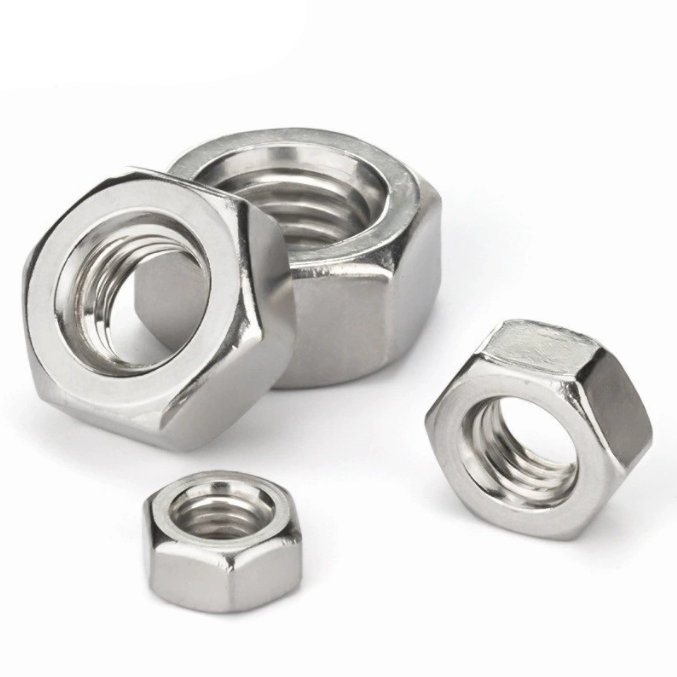

flange wheel nut
Nov . 21, 2024 20:30 Back to list
flange wheel nut
Understanding Flange Wheel Nuts Essential Components for Vehicle Safety
When it comes to vehicle maintenance and safety, one of the most often overlooked components is the wheel nut. Among the various types of wheel nuts available, flange wheel nuts have gained popularity due to their unique design and enhanced performance. This article will explore the function, advantages, and considerations of flange wheel nuts, highlighting their importance in ensuring vehicle safety and efficiency.
What is a Flange Wheel Nut?
Flange wheel nuts are specialized fasteners used to secure wheels to a vehicle's hub. Unlike traditional hex nuts, flange wheel nuts feature a wider, circular base which is called a flange. This flange serves multiple purposes, including distributing the load more evenly across the surface area of the wheel and providing a built-in washer effect, which helps in maintaining torque and preventing loosening over time. These nuts are typically made from high-strength materials, such as carbon steel or alloy steel, and are often treated with corrosion-resistant coatings to enhance durability.
Advantages of Flange Wheel Nuts
1. Improved Load Distribution The flange design enables better load distribution, reducing the risk of stress concentration at the contact point with the wheel. This minimizes the chances of warping the wheel and prolongs its lifespan.
2. Enhanced Grip Flange wheel nuts provide a larger surface area in contact with the wheel, which improves grip and reduces the likelihood of slippage. This is particularly important during high-torque applications, such as truck and heavy machinery use.
3. Reduced Threat of Loosening The built-in washer effect of the flange mitigates vibration-induced loosening. This means that drivers are less likely to experience wheel-related issues, contributing to overall vehicle safety and reliability.
4. Ease of Installation Flange wheel nuts simplify the installation process. Their larger base allows for easier alignment and application of torque. This can save both time and labor costs during wheel assembly or replacement.
flange wheel nut

5. Versatility Flange wheel nuts can be found in a variety of applications beyond standard passenger vehicles. They are used in trucks, buses, agricultural machinery, and construction equipment, making them a versatile choice for different automotive needs.
Considerations When Using Flange Wheel Nuts
While flange wheel nuts offer numerous advantages, certain considerations should be taken into account
1. Torque Specifications It is crucial to adhere to the manufacturer’s torque specifications when installing flange wheel nuts. Over-tightening can cause damage to the wheel or nut, while under-tightening may lead to loosening during operation.
2. Material Compatibility When replacing or selecting flange wheel nuts, ensure they are made from compatible materials with the vehicle’s wheels and hubs. Mismatched materials may lead to corrosion or mechanical failure.
3. Regular Inspections Like any other vehicle component, flange wheel nuts should be inspected regularly. Look for signs of wear, corrosion, or deformation, and replace them as necessary to maintain vehicle safety.
4. Proper Storage and Handling Flange wheel nuts should be stored in a dry, corrosion-free environment to prevent damage. Handling them with care during installation can also enhance their performance and lifespan.
Conclusion
Flange wheel nuts are a critical component in vehicle safety and performance. Their unique design not only enhances load distribution and grip but also reduces the risk of loosening, making them a reliable choice for various applications. As vehicles continue to evolve, understanding the importance of high-quality fasteners like flange wheel nuts will be essential for ensuring safety and performance on the road. By considering the factors mentioned above, vehicle owners and maintenance professionals can make informed decisions, ultimately leading to safer and more efficient vehicles.
Latest news
-
Hot Dip Galvanized Bolts-About LongZe|High Strength, Corrosion Resistance
NewsJul.30,2025
-
High-Strength Hot Dip Galvanized Bolts - Hebei Longze | Corrosion Resistance, Customization
NewsJul.30,2025
-
Hot Dip Galvanized Bolts-Hebei Longze|Corrosion Resistance&High Strength
NewsJul.30,2025
-
High-Strength Hot-Dip Galvanized Bolts-Hebei Longze|Corrosion Resistance&High Strength
NewsJul.30,2025
-
Hot Dip Galvanized Bolts-Hebei Longze|Corrosion Resistance&High Strength
NewsJul.30,2025
-
Hot Dip Galvanized Bolts - Hebei Longze | Corrosion Resistance, High Strength
NewsJul.30,2025

